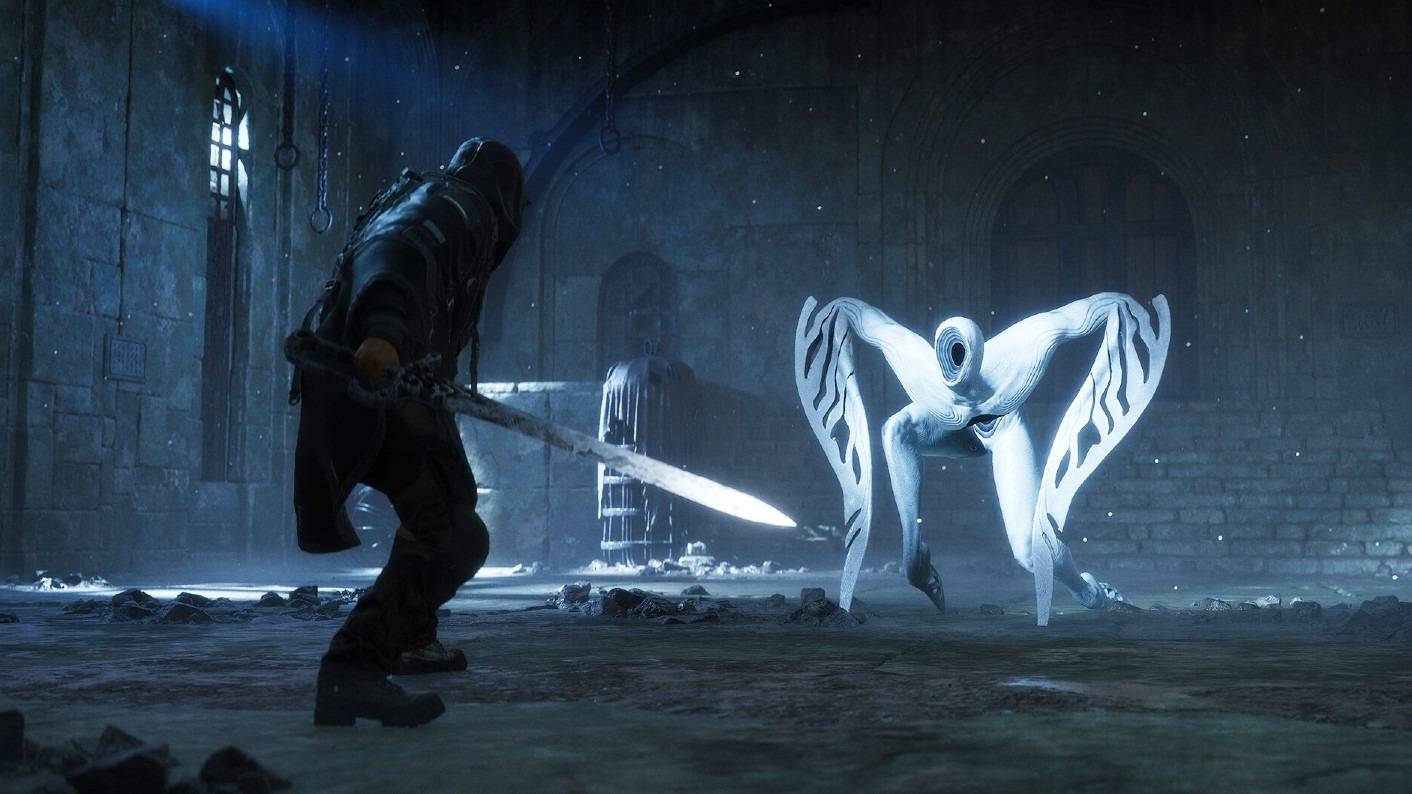Beyond the Veil of Fantasy: How Hell is Us Echoes Our Own Haunting Past
Popular Now
 Toca Boca World
Toca Boca World
 Black Myth: Wukong
Black Myth: Wukong
 Call of Duty
Call of Duty
 BeamNG.drive
BeamNG.drive
 Auto X Drift Racing 3
Auto X Drift Racing 3
 Garena Free Fire: Kalahari
Garena Free Fire: Kalahari
 Schedule I
Schedule I
 Stumble Guys
Stumble Guys
 Free Fire
Free Fire
 Genshin Impact
Genshin Impact 
The gaming world is no stranger to fantastical war. From the sprawling medieval battlefields of Elden Ring to the futuristic skirmishes of Call of Duty, we are often insulated from the true, visceral horror of conflict by layers of dragons, magic, and science fiction. Yet, a new title, Hell is Us, dares to peel back this comforting veneer, presenting a narrative that is as brutally honest as it is beautifully surreal. Developed by Rogue Factor and led by the visionary Jonathan Jacques-Belletête, the game’s core premise is a deliberate and chilling echo of real-world history, proving that the phrase “history is repeating itself” is not a cliché, but a stark and ongoing reality. Released on September 4, 2025, for PlayStation 5, Xbox Series X|S, and PC, Hell is Us has emerged as a landmark title, not just for its unique blend of Souls-like combat and open-world exploration, but for its courageous thematic depth.
In a gaming landscape saturated with familiar tropes, Hell is Us stands out by rooting its horror in humanity. The game is set in the fictional, war-torn country of Hadea, a nation consumed by a civil war between two religious factions, the Palomists and the Sabinians. This conflict, as revealed by the developers, is a conscious reimagining of the brutal civil wars that ravaged parts of Eastern Europe in the 1990s, particularly drawing inspiration from the Bosnian Civil War. This is where the game’s true power lies: in its ability to take a devastating, well-documented historical tragedy and infuse it with a new, hauntingly relevant mythology. Players, as the protagonist Remi, don’t just fight monsters; they navigate a landscape scarred by mass graves, ruined villages, and the psychological trauma of a populace caught in a seemingly endless cycle of violence.
The Unflinching Reflection of Human Atrocity in Hell is Us
The game’s themes are not subtle. From the outset, Hell is Us confronts players with the grim realities of war, touching on topics like religious persecution, ethnic cleansing, and sexual violence. The developers have spoken candidly about their “deep sadness” over humanity’s capacity for barbarism and have woven this sentiment into every fiber of Hadea’s existence. The monsters themselves, known as Lymbic Entities, are not just random creatures. They are born from a mysterious “Calamity” and are literal manifestations of human emotions—grief, wrath, and trauma—that have been left to fester in the war-torn land. This powerful metaphor serves as the game’s central thesis: the real horrors of this world are not the supernatural beasts, but the monstrous deeds committed by people against each other. The Lymbic Entities are merely the twisted, physical echoes of human hatred, a perpetual cycle fueled by passion and irrationality.
This approach to world-building is both bold and unsettling. The game’s narrative is not delivered through traditional exposition dumps. Instead, players are encouraged to piece together the tragic history of Hadea through environmental storytelling, cryptic documents, and nuanced conversations with the survivors they encounter. This “player plattering” philosophy, as coined by the developers, forces you to actively engage with the world’s misery. You become a detective, sifting through the wreckage of a broken society to uncover the truth, not just about the supernatural calamity, but about the human one that preceded it. This mechanic, devoid of hand-holding and quest markers, deepens the player’s immersion and forces a more profound connection to the game’s difficult subject matter. It is a brilliant design choice that reinforces the game’s core message: to understand the present, you must confront the past.
A New Model for Narrative in Gaming
Hell is Us is not just a game; it is a commentary on the nature of conflict and the enduring scars it leaves on a civilization. The game’s release in a world still grappling with conflicts fueled by ancient hatreds and modern misinformation is painfully timely. The decades-old Israeli-Palestinian conflict, the ongoing civil wars in Somalia and other parts of Africa, and the persistent “low-intensity” conflicts that continue to destabilize regions—all of these real-world events serve as a tragic backdrop that gives Hell is Us its undeniable resonance. The game’s setting in an alternate 1990s, a period marked by significant geopolitical upheaval, is a clever way to draw parallels to a past that, for many, is still a fresh wound.
The game’s developers have taken a significant creative risk by intertwining a fantastical horror narrative with a sensitive historical context. It is a move that could have been criticized as exploitative, but based on critical and player reception, it is clear that they have handled the material with the solemnity and respect it deserves. By refusing to offer easy answers or a magical solution to the civil war, Hell is Us holds up a mirror to the intractable nature of human conflict. The game’s protagonist, Remi, is not there to save the world, but to find meaning in one that is already broken. This sobering conclusion is perhaps the most valuable lesson the game can offer. It is a reminder that while the monsters we fight in games may be vanquished, the monsters of human cruelty and division are a far more persistent and terrifying enemy. Hell is Us is an essential experience for anyone seeking a narrative that is both thought-provoking and deeply moving, proving that in the right hands, a video game can be more than entertainment—it can be a powerful instrument of social and historical critique.
- Review Score: 8.5/10 – A masterful fusion of horror, history, and action-adventure.
- Best Features: Immersive world-building, powerful narrative, unique exploration mechanics.
- Target Audience: Mature gamers seeking a dark, atmospheric story with rich lore and challenging gameplay.
- CPC Keywords: best new horror games, Hell is Us review, top PS5 exclusive games, new PC games 2025, action-adventure games with deep story, buy Hell is Us, Rogue Factor games, Jonathan Jacques-Belletête.








